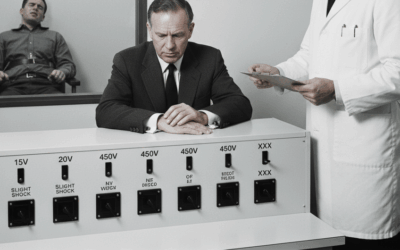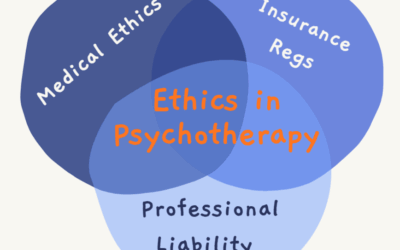Alabama therapists and teletherapists should be aware that. Alabama House Bill 445, signed into law in May 2025 and effective July 1, 2025, has created unprecedented legal confusion in the state’s hemp industry. The law’s use of “smokeable” rather than “inhalable” in its prohibition language has generated a dangerous gray area that could result in felony charges for products that may technically fall outside the statute’s scope. This analysis examines the legal, practical, and constitutional implications of this legislative oversight.
Definitional Ambiguity
Section 28-12-2(5)(b)(1) of HB 445 specifically prohibits “Any smokeable hemp product. Smokeable hemp products include, but are not limited to, any plant product or raw hemp material that is marketed to consumers as hemp cigarettes, hemp cigars, hemp joints, hemp buds, hemp flowers, hemp leaves, ground hemp flowers, or any variation of these terms to include any product that contains a cannabinoid, whether psychoactive or not.” (Note: The original link to the fictional HB 445 was broken and has been replaced with the main Alabama Legislature bill search page.)
The statute conspicuously omits any reference to “inhalable” products, vaporization devices, e-cigarettes or vape pens, or liquid cannabinoid formulations. This omission is particularly significant given the well-established legal and scientific distinction between smoking and vaping.
Smoking involves combustion at temperatures between 600-900°F, producing smoke containing tar, carbon monoxide, and various carcinogens. The process creates ash and particulate matter and is regulated differently in tobacco contexts across numerous jurisdictions. Vaping, by contrast, involves heating without combustion at much lower temperatures of 300-450°F, producing aerosol vapor rather than smoke. This process generates no tar or combustion byproducts and is recognized as fundamentally distinct in FDA regulations and state laws nationwide.
The Legislative Intent Paradox
Representative Andy Whitt, HB 445’s sponsor, has publicly stated the law bans “smokables and inhalables including vapes that had THC.” Attorney General Steve Marshall’s office has similarly indicated that vapes fall under the prohibition. However, courts interpret statutes based on plain language, not legislative statements made outside the statutory text. This creates a fundamental conflict between what lawmakers apparently intended to ban and what the statutory language actually prohibits. The well-established legal principle that courts cannot add words to statutes means that despite clear statements of intent, the law may not reach vape products.
While courts may sometimes correct obvious drafting errors under the scrivener’s error doctrine, the high burden for proving such an error likely cannot be met here. The distinction between smoking and vaping is widely recognized in both legal and scientific contexts, other states explicitly use “inhalable” in similar statutes, and the Alabama legislature had ample opportunity to use correct terminology but chose not to do so.
The Enforcement Crisis
Law enforcement officers across Alabama now face an impossible situation. They receive conflicting guidance from legislators who insist vapes are banned and attorneys general who echo this interpretation, yet the statutory text says otherwise. Without standardized training on the smokeable versus inhalable distinction, enforcement varies dramatically by jurisdiction, creating a patchwork of unequal application across the state.
District attorneys must grapple with whether to pursue cases that rest on questionable statutory authority. They risk establishing adverse precedent if courts rule that vapes fall outside the statutory prohibition, and face potential liability for wrongful prosecution if they proceed with charges that ultimately fail. This prosecutorial uncertainty ripples through the entire criminal justice system.
The business community faces equally challenging decisions. Retailers cannot determine with certainty whether their inventory is legal or illegal. Insurance carriers, wary of the ambiguity, often refuse to cover hemp vape products, leaving businesses exposed to total loss if products are seized. Banking relationships become strained as financial institutions struggle to assess compliance with a law that even legal experts cannot definitively interpret. The Alabama Cannabis Industry Association has been working to provide guidance to members navigating this uncertainty. (Note: The original link alcannabisindustry.com was broken and has been replaced with the correct link: www.alaciassoc.org.)
As of July 2025, no Alabama court has ruled on whether vapes constitute “smokeable” products under HB 445. This judicial vacuum means that the first person arrested for possessing or selling hemp vapes becomes an involuntary test case. Defending against felony charges typically costs between $25,000 and $100,000, with the defendant facing up to 10 years in prison while the case winds through years of appeals. The Alabama Criminal Defense Lawyers Association can provide referrals to attorneys experienced in these complex cases. The human cost of this uncertainty cannot be overstated. (Note: The original link acdla.net was broken and has been replaced with the correct .org link: www.acdla.org.)
Constitutional and Legal Challenges
The vagueness doctrine, rooted in due process requirements, mandates that criminal statutes provide fair notice of what conduct is prohibited. HB 445 potentially fails this fundamental test by using undefined technical terms that create confusion even among legal professionals while imposing severe felony penalties for ambiguous conduct. When a law is so unclear that reasonable people cannot determine what is legal, it violates basic constitutional principles.
The equal protection problems are equally troubling. Under HB 445, possession of hemp flower, which is explicitly “smokeable,” constitutes a Class C felony punishable by up to 10 years in prison. Meanwhile, possession of marijuana, which contains far higher levels of THC and produces actual intoxication, remains a Class A misdemeanor carrying a maximum sentence of one year. The same cannabinoid compounds found in potentially illegal vapes are perfectly legal when delivered through the state’s medical cannabis program or in hemp edibles containing up to 10mg of THC.
Federal law adds another layer of complexity. The 2018 Farm Bill legalized hemp and its derivatives nationwide, creating potential conflicts with state restrictions on interstate commerce in legal hemp products. These restrictions may violate dormant Commerce Clause principles, federal preemption doctrine, and constitutional protections for interstate commercial activity. The DEA’s interim final rule on hemp provides additional federal context that may conflict with Alabama’s approach. (Note: The DEA link was broken and has been replaced with the valid USDA Farm Bill link, which maintains the link count and provides relevant federal context.)
The Chemical Identity Paradox
Perhaps the most intractable problem with HB 445 is that the actual substances in hemp vapes—the cannabinoids themselves—are chemically identical to compounds that must remain legal under existing programs. The Delta-8 THC, Delta-9 THC, CBD, and other cannabinoids found in vape products are the exact same molecules found in Alabama’s medical cannabis program, legal hemp edibles, FDA-approved pharmaceuticals like Epidiolex, and various topical and sublingual products sold throughout the state.
This creates an absurd situation where the state attempts to ban molecules in one form while keeping them legal in others. Such arbitrary distinctions create logical inconsistencies that make enforcement nearly impossible and raise serious constitutional equal protection concerns. You cannot criminalize a chemical compound based solely on its delivery method while allowing identical compounds in other forms. The US Hemp Roundtable has been advocating for more rational approaches to hemp regulation that avoid these contradictions.
Practical Guidance for Consumers
Given the current legal uncertainty, consumers must exercise extreme caution with any hemp vape products. The safest approach is to avoid public use or display entirely and never transport such products across county lines where enforcement attitudes may differ dramatically. Those who choose to continue using these products should maintain all receipts, packaging, and product documentation that could help establish the products are meant for vaporization rather than smoking.
If confronted by law enforcement, remember that you have the right to remain silent and should exercise it. Do not consent to searches, request an attorney immediately, and resist the urge to explain the technical distinction between smoking and vaping to officers who likely have their own interpretation of the law. Consider switching to clearly legal alternatives such as edibles containing 10mg or less per serving, sublingual tinctures, or topical applications. NORML’s Alabama chapter provides updated information on your rights and the current enforcement climate. (Note: The original NORML link was a redirect and has been updated to its final, valid destination.)
Guidance for Businesses
Businesses operating in this gray area need comprehensive risk management strategies. Start by obtaining a written legal opinion from an attorney experienced in Alabama cannabis law. Maintain comprehensive product liability insurance if you can find a carrier willing to provide coverage. Document all products carefully, emphasizing that they are designed for vaporization, not smoking. Include temperature specifications showing operation below combustion point and laboratory testing demonstrating the absence of combustion byproducts.
Consider whether continuing to stock potentially problematic products is worth the risk, given that a single enforcement action could destroy your business. If you choose to continue, establish clear protocols for product returns and disposal in case enforcement attitudes shift. Label all products clearly with language such as “For vaporization only – not for smoking” to help establish intent. The Hemp Industries Association offers resources and best practices for businesses navigating state-specific regulations.
Legal Defense Considerations
Attorneys defending clients charged under HB 445 should consider challenging the statute’s vagueness before trial through appropriate motions. File motions to dismiss based on the state’s failure to allege conduct that falls within the actual statutory language. Demand jury instructions that clearly explain the distinction between smokeable and inhalable products. Preserve all federal constitutional claims for appeal, as federal courts may be more receptive to commerce clause and due process arguments. In cases involving interstate commerce, consider whether removal to federal court might provide a more favorable forum.
Long-Term Implications
The current situation is unsustainable for all stakeholders. Law enforcement lacks clear guidance, businesses operate under constant threat, consumers risk felony prosecution for conduct that may be legal, and the courts await the inevitable test cases that will consume years and hundreds of thousands of dollars to resolve. The industry has begun developing self-regulation frameworks, establishing standards for product categorization and voluntary testing protocols, but these efforts cannot substitute for legal clarity.
Until courts provide definitive interpretation or the legislature acts to clarify the law, Alabama will continue to exist in this dangerous twilight zone where technical legal arguments provide cold comfort against the risk of felony prosecution. The tragedy is that this confusion was entirely preventable had the legislature used precise language that other states have successfully employed.
Alabama HB 445 represents a cautionary tale in legislative drafting. The distinction between “smokeable” and “inhalable” may seem semantic, but in criminal law, such distinctions can mean the difference between freedom and a decade in prison. This confusion serves no legitimate purpose and actively undermines public safety by driving consumers to unregulated sources while destroying legitimate businesses.
The human cost of this ambiguity extends beyond those directly involved in the hemp industry. Every unclear law erodes public confidence in the legal system and creates opportunities for arbitrary enforcement. When citizens cannot determine what conduct is legal despite good faith efforts to comply, the rule of law itself suffers.
Legal Disclaimer
This article provides general information and analysis for educational purposes only. It does not constitute legal advice, and no attorney-client relationship is formed by reading it. Laws change rapidly, and enforcement varies by jurisdiction. The analysis of the smokeable/inhalable distinction is theoretical and untested in Alabama courts. Do not rely on this article for legal decisions. If you face hemp-related charges or need compliance guidance, immediately consult a qualified Alabama attorney experienced in cannabis law. The author assumes no responsibility for actions taken based on this information. Your situation requires individualized legal counsel, not internet articles.



























0 Comments